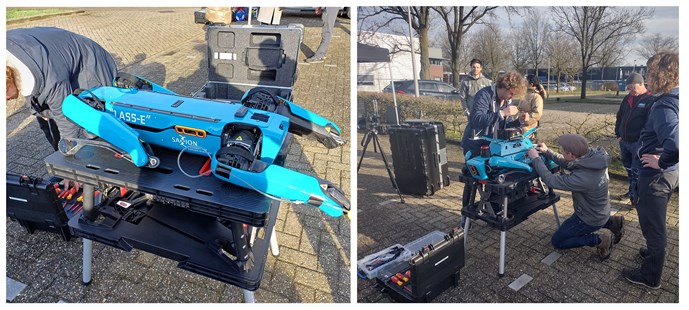Kiwa Assists LASS-e Robot in Successful Gas Leak Inspection
In a significant stride towards enhancing safety and efficiency in gas line inspections, Kiwa recently collaborated with Alliander Research Center for Digital Technologies and the Smart Mechatronics And RoboTics (SMART) Research Group, assisting with their CHARISMA project. The joint effort resulted in the successful deployment of the LASS-e robot to autonomously inspect underground natural gas lines.
Traditionally, gas line inspections are done manually, with inspectors traversing the gas lines equipped with sensors. However, the growing demand for inspections, coupled with labor shortages and evolving EU regulations, has prompted the exploration of autonomous solutions.
The CHARISMA (CH4 Autonomous Robotized Inspection for Sustainable Maintenance) project aimed to revolutionize gas line inspections by leveraging e-robots. These robots, equipped with sophisticated technology, can navigate underground environments and detect gas leaks with precision.

Alliander and SMART Research Group’s journey towards autonomy involved understanding gas inspection procedures, developing specialized equipment, and mastering accurate navigation techniques using the ROS2 NAV2 package. Kiwa Training, headquartered in Apeldoorn, played a pivotal role in this endeavor by providing access to their 'operator training' leak simulation tracks.
During the test, the LASS-e robot, outfitted with a state-of-the-art backpack, demonstrated its capabilities by traversing the pipeline, detecting a simulated gas leak, and promptly reporting it. The successful outcome underscored the viability of autonomous inspection technologies in ensuring the safety and integrity of gas infrastructure.
With Kiwa Training's support and expertise, the integration of robotics and advanced inspection techniques heralds a new era in gas line maintenance.
To learn more about Kiwa Training, head to our website: https://www.kiwa.com/en/services/training/
Video Credit: Alliander Research Center for Digital Technologies


